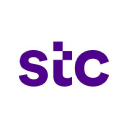4340.SR

Al Rajhi REIT Fund
4340.SR
(0.0)8,40 SAR
5.8% ROA
9.35% ROE
12.66x PER
2.315.098.800,00 SAR
40.57% DER
6.37% Yield
48.58% NPM
Al Rajhi REIT Fund Stock Analysis
Al Rajhi REIT Fund Fundamental Analysis
Fundamental analysis in stock investing is like studying the foundation of a house before buying it. It involves looking at a company's financial health, like its earnings, assets, and debts, to determine if it's a good investment based on its fundamental strength and potential for growth.
| # | Analysis | Rating |
|---|---|---|
| 1 |
ROE
Unidentified ROE |
|
| 2 |
ROA
Unidentified ROA |
|
| 3 |
PBV
Unidentified ROA |
|
| 4 |
DER
Unidentified DER |
|
| 5 |
Revenue Growth
Company's revenue has stayed stagnant, showing no signs of improvement and making it a less favorable choice. |
|
| 6 |
Net Profit Growth
Despite the passage of five years, this company's net profit has not shown any improvement, highlighting a lack of growth and making it a less appealing investment prospect. |
|
| 7 |
Assets Growth
Regrettably, this company's revenue has shown no signs of growth over the past three years, suggesting limited potential for returns and making it a less appealing choice. |
|
| 8 |
Graham Number
Unidentified Graham Number |
|
| 9 |
Dividend Growth
Potential investors should be aware that the company's dividend growth has shown no upward trend in the past three years, indicating limited potential for increased returns. |
|
| 10 |
Dividend
Investors should be cautious as the company hasn't distributed dividends in the last three years, possibly indicating financial challenges. |
|
| 11 |
Buffet Intrinsic Value
The company's stock presents a potential concern as it appears overvalued (0) by Warren Buffett's formula, indicating that its market price exceeds its estimated intrinsic value. |
Al Rajhi REIT Fund Technical Analysis
Technical analysis in stock investing is like reading the patterns on a weather map to predict future weather conditions. It involves studying past stock price movements and trading volumes to make predictions about where a stock's price might go next, without necessarily looking at the company's financial health.
| # | Analysis | Recommendation |
|---|
Al Rajhi REIT Fund Price Chart
Financial Statements
Financial statements are like report cards for companies. They show how much money a company makes (income statement), what it owns and owes (balance sheet), and where it spends its money (cash flow statement), helping stock investors understand if a company is healthy and worth investing in.
Income Statements
An income statement for a company is like a scoreboard for its profits and losses. It shows how much money the company made (revenue) and how much it spent to make that money (expenses), helping stock investors see if a company is making a profit or not.
Revenue in stock investing is the total amount of money a company earns from its sales, and it's a key factor that investors consider to assess a company's financial performance and growth potential.
| Year | Revenue | Growth |
|---|---|---|
| 2018 | 91.842.207 | |
| 2019 | 115.934.466 | 20.78% |
| 2020 | 168.855.514 | 31.34% |
| 2021 | 130.283.660 | -29.61% |
| 2022 | 158.156.358 | 17.62% |
| 2023 | 200.608.315 | 21.16% |
| 2024 | 469.327.696 | 57.26% |
Research and Development Expenses are the costs a company incurs to create and improve its products or services, which can be important for investors to evaluate a company's innovation and potential for future growth.
| Year | Research and Development Expenses | Growth |
|---|---|---|
| 2018 | 0 | |
| 2019 | 0 | 0% |
| 2020 | 0 | 0% |
| 2021 | -1 | 100% |
| 2022 | 1 | 0% |
| 2023 | 0 | 0% |
| 2024 | 0 | 0% |
General and Administrative Expenses are the costs a company incurs to run its day-to-day operations, such as office rent, salaries, and utilities, which investors consider to understand a company's overall efficiency and management effectiveness.
| Year | General and Administrative Expenses | Growth |
|---|---|---|
| 2018 | 9.809.233 | |
| 2019 | 13.450.101 | 27.07% |
| 2020 | 18.204.172 | 26.12% |
| 2021 | 16.520.103 | -10.19% |
| 2022 | 16.812.114 | 1.74% |
| 2023 | 20.704.750 | 18.8% |
| 2024 | 0 | 0% |
EBITDA stands for Earnings Before Interest, Taxes, Depreciation, and Amortization. It is a measure that helps stock investors analyze a company's profitability by looking at its earnings without considering certain expenses. This helps to get a clearer picture of the company's financial performance and its ability to generate cash flow.
| Year | EBITDA | Growth |
|---|---|---|
| 2018 | 77.027.694 | |
| 2019 | 92.235.230 | 16.49% |
| 2020 | 131.881.499 | 30.06% |
| 2021 | 101.148.500 | -30.38% |
| 2022 | 132.288.758 | 23.54% |
| 2023 | 171.623.860 | 22.92% |
| 2024 | 413.592.400 | 58.5% |
Gross profit is the money a company makes from selling its products or services after subtracting the cost of producing or providing them, and it is an important measure for investors to understand a company's profitability.
| Year | Gross Profit | Growth |
|---|---|---|
| 2018 | 82.032.974 | |
| 2019 | 102.484.365 | 19.96% |
| 2020 | 121.437.363 | 15.61% |
| 2021 | 85.167.668 | -42.59% |
| 2022 | 111.409.703 | 23.55% |
| 2023 | 136.881.178 | 18.61% |
| 2024 | 313.061.132 | 56.28% |
Net income in stock investing is like the money a company actually gets to keep as profit after paying all its bills, and it's an important measure to understand how well a company is doing financially.
| Year | Net Profit | Growth |
|---|---|---|
| 2018 | 49.647.505 | |
| 2019 | 37.907.543 | -30.97% |
| 2020 | -77.763.960 | 148.75% |
| 2021 | -422.708.325 | 81.6% |
| 2022 | 157.160.008 | 368.97% |
| 2023 | 75.547.599 | -108.03% |
| 2024 | 286.313.156 | 73.61% |
EPS, or earnings per share, is a measure that shows how much profit a company has earned for each outstanding share of its stock, and it is important for stock investors as it helps understand the profitability of a company and compare it with other companies in the market.
| Year | Earning per Share (EPS) | Growth |
|---|---|---|
| 2018 | 0 | |
| 2019 | 0 | 0% |
| 2020 | 0 | 0% |
| 2021 | -3 | 100% |
| 2022 | 1 | 0% |
| 2023 | 0 | 0% |
| 2024 | 1 | 100% |
Cashflow Statements
Cashflow statements show the movement of money in and out of a company, helping stock investors understand how much money a company makes and spends. By examining cashflow statements, investors can assess if a company is generating enough cash to pay its bills, invest in growth, and provide returns to stockholders.
Free cash flow is the leftover cash that a company generates after covering its operating expenses and capital expenditures, which is important for stock investors as it shows how much money a company has available to invest in growth, pay dividends, or reduce debt.
| Year | Free Cashflow | Growth |
|---|---|---|
| 2018 | 81.844.094 | |
| 2019 | 26.500.798 | -208.84% |
| 2020 | 90.174.338 | 70.61% |
| 2021 | 78.750.889 | -14.51% |
| 2022 | 94.907.066 | 17.02% |
| 2023 | 85.880.216 | -10.51% |
| 2024 | 101.278.394 | 15.2% |
Operating cash flow represents the cash generated or consumed by a company's day-to-day operations, excluding external investing or financing activities, and is crucial for stock investors as it shows how much cash a company is generating from its core business operations.
| Year | Operating Cashflow | Growth |
|---|---|---|
| 2018 | 81.844.094 | |
| 2019 | 26.500.798 | -208.84% |
| 2020 | 90.174.338 | 70.61% |
| 2021 | 78.750.889 | -14.51% |
| 2022 | 94.907.066 | 17.02% |
| 2023 | 85.880.216 | -10.51% |
| 2024 | 101.278.394 | 15.2% |
Capex, short for capital expenditures, refers to the money a company spends on acquiring or upgrading tangible assets like buildings, equipment, or technology, which is important for stock investors as it indicates how much a company is investing in its infrastructure to support future growth and profitability.
| Year | Capital Expenditure | Growth |
|---|---|---|
| 2018 | 0 | |
| 2019 | 0 | 0% |
| 2020 | 0 | 0% |
| 2021 | 0 | 0% |
| 2022 | 0 | 0% |
| 2023 | 0 | 0% |
| 2024 | 0 | 0% |
Balance Sheet
Balance sheets provide a snapshot of a company's financial health and its assets (such as cash, inventory, and property) and liabilities (like debts and obligations) at a specific point in time. For stock investors, balance sheets help assess the company's overall worth and evaluate its ability to meet financial obligations and support future growth.
Equity refers to the ownership interest or stake that shareholders have in a company, representing their claim on its assets and earnings after all debts and liabilities are paid.
| Year | Equity | Growth |
|---|---|---|
| 2018 | 1.250.411.446 | |
| 2019 | 1.578.439.127 | 20.78% |
| 2020 | 1.511.581.047 | -4.42% |
| 2021 | 1.245.863.350 | -21.33% |
| 2022 | 1.260.541.568 | 1.16% |
| 2023 | 2.213.739.529 | 43.06% |
| 2024 | 2.209.525.756 | -0.19% |
Assets represent the valuable resources that a company owns, such as cash, inventory, property, and equipment, and understanding a company's assets helps investors assess its value and potential for generating future profits.
| Year | Assets | Growth |
|---|---|---|
| 2018 | 1.740.371.858 | |
| 2019 | 2.386.201.229 | 27.07% |
| 2020 | 2.323.594.697 | -2.69% |
| 2021 | 2.061.500.228 | -12.71% |
| 2022 | 2.186.582.095 | 5.72% |
| 2023 | 3.136.064.035 | 30.28% |
| 2024 | 3.155.523.996 | 0.62% |
Liabilities refer to the financial obligations or debts that a company owes to creditors or external parties, and understanding a company's liabilities is important for investors as it helps assess the company's financial risk and ability to meet its obligations.
| Year | Liabilities | Growth |
|---|---|---|
| 2018 | 489.960.412 | |
| 2019 | 807.762.102 | 39.34% |
| 2020 | 812.013.650 | 0.52% |
| 2021 | 815.636.878 | 0.44% |
| 2022 | 926.040.527 | 11.92% |
| 2023 | 922.324.506 | -0.4% |
| 2024 | 945.998.240 | 2.5% |
Al Rajhi REIT Fund Financial Ratio (TTM)
Valuation Metrics
- Revenue per Share
- 1.37
- Net Income per Share
- 0.66
- Price to Earning Ratio
- 12.66x
- Price To Sales Ratio
- 6.15x
- POCF Ratio
- 10.41
- PFCF Ratio
- 10.41
- Price to Book Ratio
- 1.05
- EV to Sales
- 8.47
- EV Over EBITDA
- 12.12
- EV to Operating CashFlow
- 14.34
- EV to FreeCashFlow
- 14.34
- Earnings Yield
- 0.08
- FreeCashFlow Yield
- 0.1
- Market Cap
- 2,32 Bil.
- Enterprise Value
- 3,19 Bil.
- Graham Number
- 10.94
- Graham NetNet
- -2.96
Income Statement Metrics
- Net Income per Share
- 0.66
- Income Quality
- 1.22
- ROE
- 0.09
- Return On Assets
- 0.06
- Return On Capital Employed
- 0.08
- Net Income per EBT
- 0.98
- EBT Per Ebit
- 0.75
- Ebit per Revenue
- 0.66
- Effective Tax Rate
- 0.03
Margins
- Sales, General, & Administrative to Revenue
- 0
- Research & Developement to Revenue
- 0
- Stock Based Compensation to Revenue
- 0
- Gross Profit Margin
- 0.73
- Operating Profit Margin
- 0.66
- Pretax Profit Margin
- 0.49
- Net Profit Margin
- 0.49
Dividends
- Dividend Yield
- 0.06
- Dividend Yield %
- 6.37
- Payout Ratio
- 1.23
- Dividend Per Share
- 0.54
Operating Metrics
- Operating Cashflow per Share
- 0.81
- Free CashFlow per Share
- 0.81
- Capex to Operating CashFlow
- 0
- Capex to Revenue
- 0
- Capex to Depreciation
- 0
- Return on Invested Capital
- 0.08
- Return on Tangible Assets
- 0.06
- Days Sales Outstanding
- 56.17
- Days Payables Outstanding
- 0
- Days of Inventory on Hand
- 0
- Receivables Turnover
- 6.5
- Payables Turnover
- 0
- Inventory Turnover
- 0
- Capex per Share
- 0
Balance Sheet
- Cash per Share
- 0,32
- Book Value per Share
- 8,02
- Tangible Book Value per Share
- 8.02
- Shareholders Equity per Share
- 8.02
- Interest Debt per Share
- 3.34
- Debt to Equity
- 0.41
- Debt to Assets
- 0.28
- Net Debt to EBITDA
- 3.32
- Current Ratio
- 0
- Tangible Asset Value
- 2,21 Bil.
- Net Current Asset Value
- -0,95 Bil.
- Invested Capital
- 0
- Working Capital
- 0,00 Bil.
- Intangibles to Total Assets
- 0
- Average Receivables
- 0,06 Bil.
- Average Payables
- 0,00 Bil.
- Average Inventory
- 0
- Debt to Market Cap
- 0.39
Dividends
Dividends in stock investing are like rewards that companies give to their shareholders. They are a portion of the company's profits distributed to investors, typically in the form of cash payments, as a way for them to share in the company's success.
| Year | Dividends | Growth |
|---|---|---|
| 2018 | 0 | |
| 2019 | 1 | 0% |
| 2020 | 0 | 0% |
| 2021 | 0 | 0% |
| 2022 | 1 | 0% |
| 2023 | 1 | 0% |
| 2024 | 0 | 0% |
Al Rajhi REIT Fund Profile
About Al Rajhi REIT Fund
Al Rajhi REIT Fund (Al Rajhi REIT) is a closed-ended Shariah-compliant real estate investment traded fund the offering of the units in Al Rajhi REIT has been approved by the Saudi Arabian Capital Market Authority on 30/3/1439H (corresponding to 18/12/2017G). The Al Rajhi REIT operates in accordance with Real Estate Investment Funds Regulations and REIT Instructions issued by the CMA. Al Rajhi REIT is listed on Tadawul and units of the Al Rajhi REIT shall be on traded on the Tadawul in accordance with its rules and regulations. The Initial Capital of the Al Rajhi REIT was SAR 1,222,006,090 divided into 122,200,609 units with inception price of SAR 10 per unit. Further in 4Q 2019, it went through total asset value increase process and issued 39,656,248 units at SAR 8.8 per unit. Thereby as of now, total issued units stands at 161,856,857. Al Rajhi REIT has a term of 99 years, which is extendable in the discretion of the Fund Manager with the prior approval of the Fund Board and CMA. Investment Objectives and Strategy: The investment objective of the Al Rajhi REIT is to invest in income generating real estate assets and to distribute to investors an annual cash dividend of no less than 90% of the REIT s net income during the period of the Fund on semi-annual basis at the end of each month of February and August of each calendar year. The said profits are distributed except capital gains arising from the sale of real estate assets which are reinvested in additional assets to serve the interests of the unit holders. The Fund currently invests in 18 properties and will distribute the dividends.
- CEO
- Employee
- 0
- Address
-
8467 King Fahd Road
Riyadh, 12263-2743
Al Rajhi REIT Fund Executives & BODs
| # | Name | Age |
|---|




